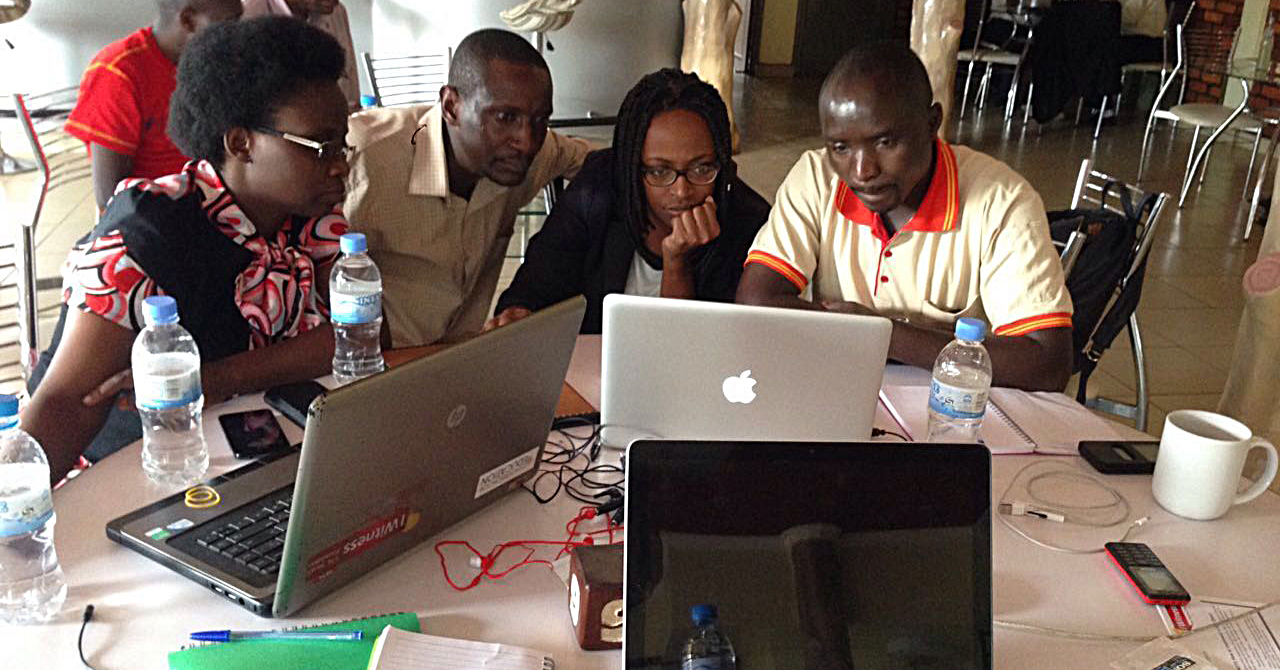Rwandan Teachers Build New IWitness Activities

After nearly three years of the IWitness in Rwanda program, IWitness will debut new activities created by some of the teachers who participated in the program.
Five activities about the 1994 Genocide Against the Tutsi in Rwanda are in the process of being reviewed and prepared for publishing in IWitness. Each activity was authored by Rwandan teachers who attended IWitness educator workshops as part of Rwanda Peace Education Program.
The activities are a Video Activity called “Discrimination in Schools in Rwanda,” a Mini Lesson called “Consequences of Genocide Against the Tutsi 1994 in Rwanda,” a Video Activity called “1994 Genocide Against Tutsi,” a Mini Quest called “Discrimination in Schools Before the 1994 Genocide Against the Tutsi” and an Information Quest “Genocide and its Consequences.”
Philippe Samvura and Marthe Twizeyimana created “Discrimination in Schools Before the 1994 Genocide Against the Tutsi.” The activity introduces students to the discrimination that happened in Rwandan schools and the importance of fighting discrimination in society. In testimony clips, Rwandan survivors describe taunting and harassment from their teachers and classmates that was so bad that they had to leave school.
Twizeyimana said she was inspired to create the activity from what she learned at the IWitness trainings. She hopes the activity inspires students to actively fight against the factors that lead to genocide.
Samvura said IWitness inspires constructive dialogue, critical thinking and self-reflection. It helps his students “get a sense of their own place and have [a] great impact in their families and value [sic] the pain of their friends and relatives.”
“The conclusion of our activity is given by our students whereby they are giving the solution of that discrimination by saying '' NEVER AGAIN'' and encouraging other youth to not forget what happened and fighting against the ideology of genocide,” Samvura said.
Twizeyimana and Samvura both teach at St. Vincent Muhoza Secondary School in Musanze, where they have conducted their own classroom pilots of IWitness.
Jotham Sebikari and Honore Bakarena,from ESSA Ruhengeri secondary school in Musanze, created the Mini Lesson on "Consequences of the 1994 Genocide Against the Tutsis." Sebikari believes his lesson is important because many of his students today are young enough that they don’t know much about the genocide.
Sphoman Sinzi, from Groupe Scolaire Remera Rukoma, and Habert Natuwhera, from Agohozo Shalom Youth Village created the “Genocide and Its Consequence” activity in order to provide an overview of the genocide, its causes and effects. He appreciated how IWitness allows students to learn via text and video, and to understand why it is so important to make sure genocide never happens again.
“It also stimulates learners to enrich what they acquire in the classroom theoretically because testimonies themselves are interesting and make learners follow the lesson carefully [sic],” Sinzi said.
Zacharie Benedata, from Groupe Scolaire, and also with Habert Natuwhera, from Agohozo Shalom Youth Village, created the second activity about discrimination in schools in Rwanda, inspired by incidents they and other teachers still deal with at school today. Students are introduced to the different forms of discrimination in Rwanda during the first and second republics as well as the personal stories of witnesses who were affected by them. Natuwhera said the activity will hopefully inspire students to be “patriotic” by working hard and speaking out against discrimination.
Benedata said testimony in IWitness can help combat genocide denial and allow students who were not even born when the genocide happened to have a deeper understanding of their country’s history.
“It is important because when you don't know where you come from you can not plan for the future,” he said.